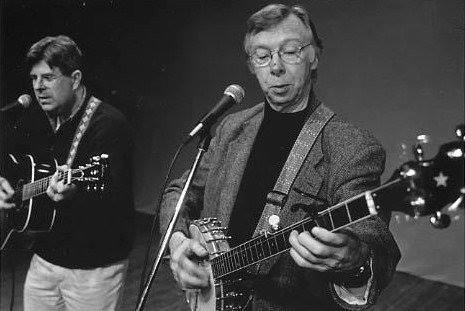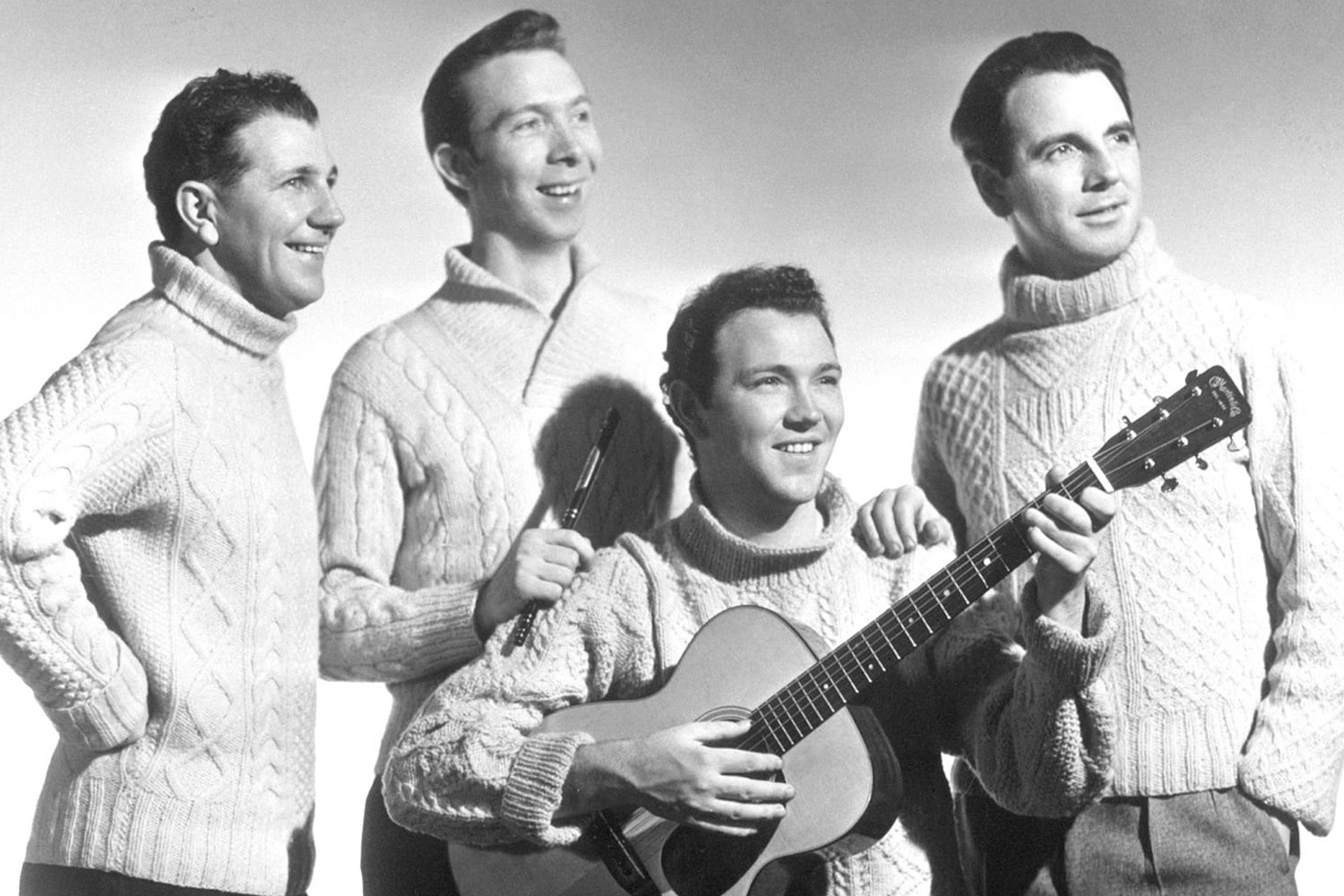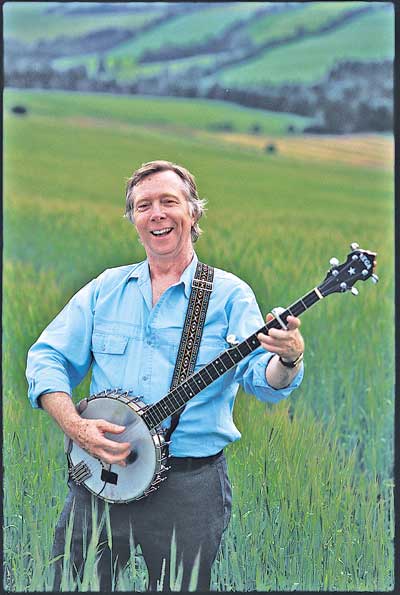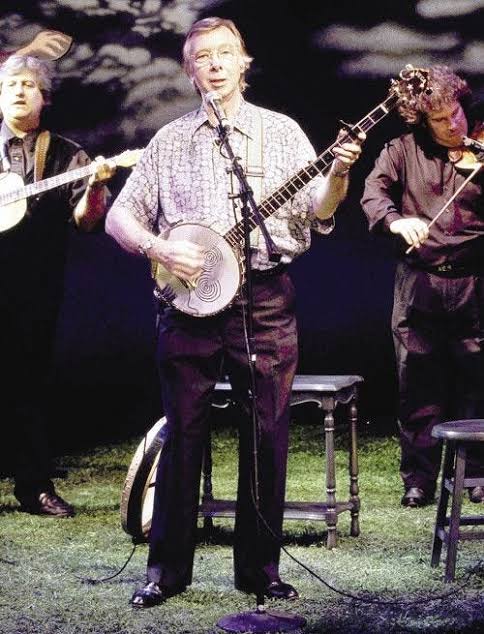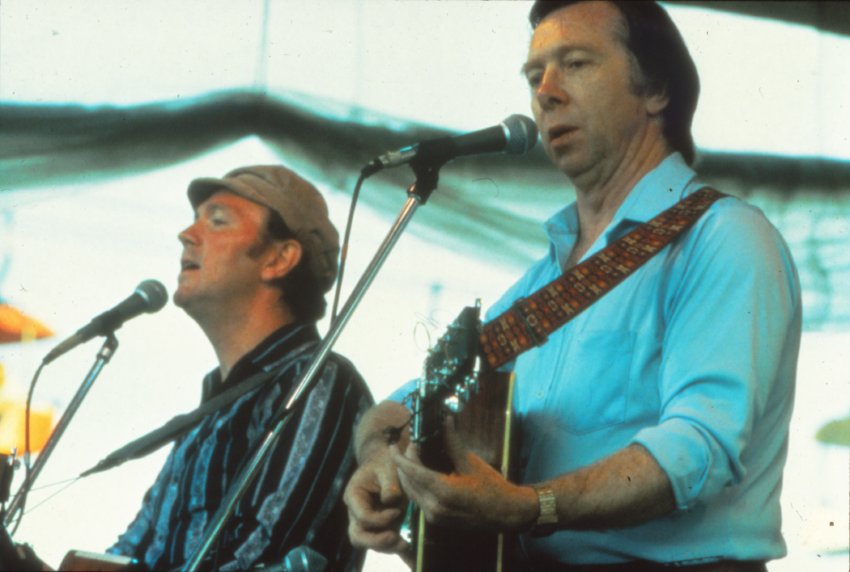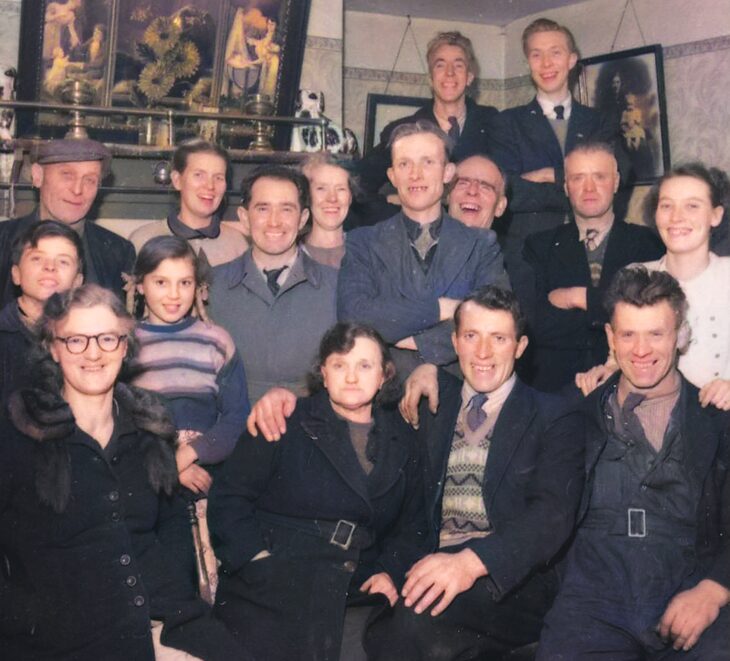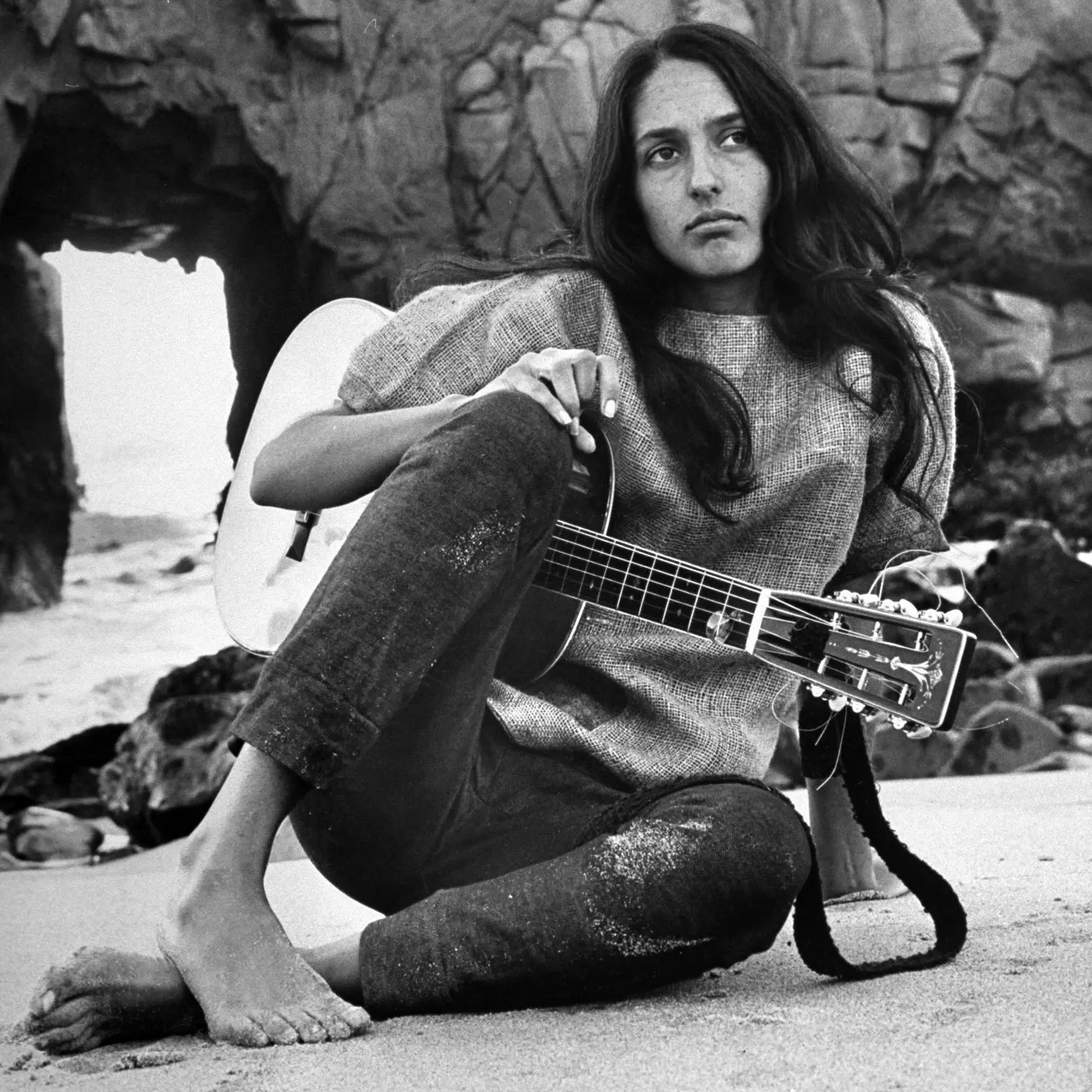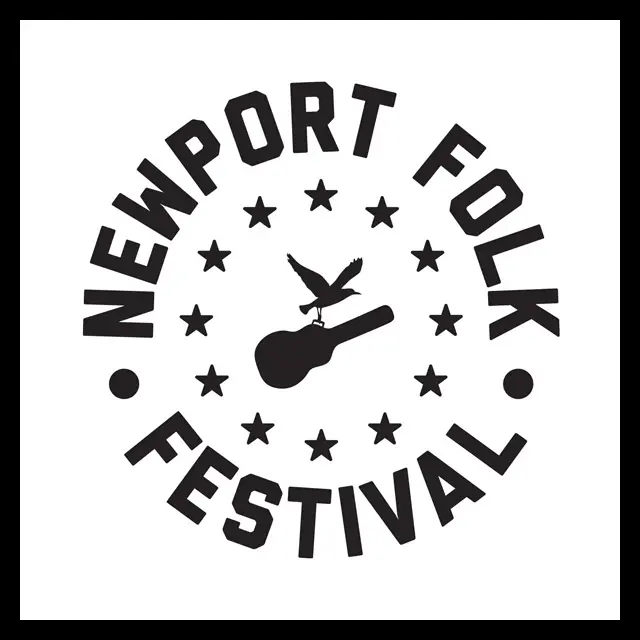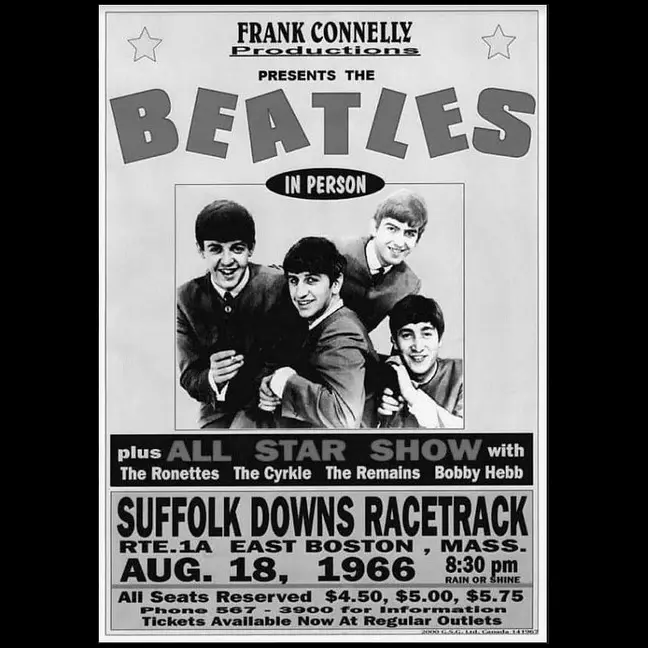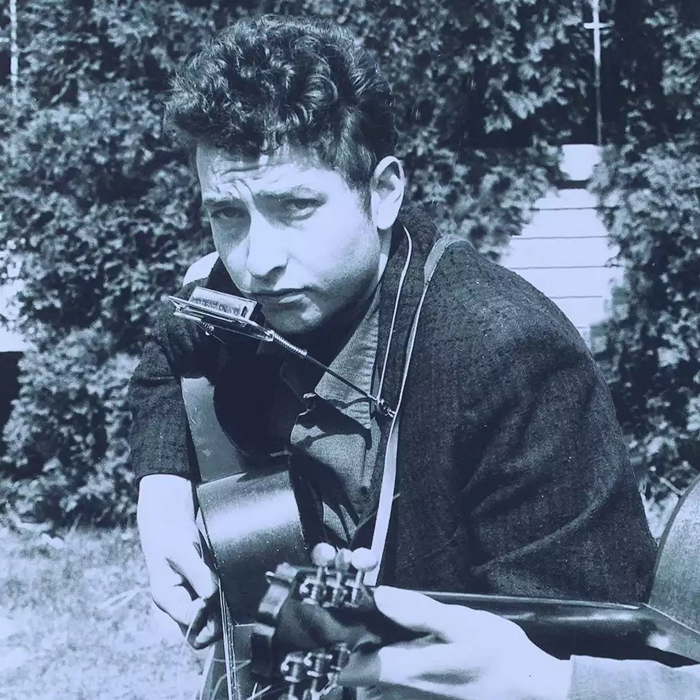Tommy Makem
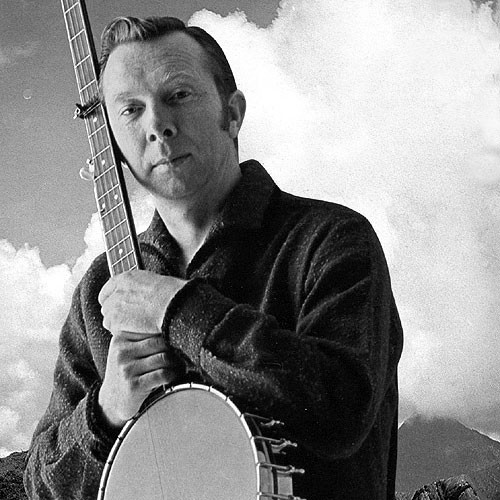
In 1955, a man from Northern Ireland flew into America through Boston’s Logan Airport, carrying only an x-ray of his lungs and a set of bagpipes. Upon landing, a Customs and Immigration official processed the 23-year old and instructed him to “Have a good life.” The immigrant was Tommy Makem, the Godfather of Irish Music. “I took him at his word,” Makem often said of the officer.
Makem headed north to Dover, New Hampshire, a town awash in jobs and a burgeoning Irish populace. He was preceded by relatives and acquaintances eager to make better lives for themselves in the United States. The city’s textile mills provided ample employment and gave those relatives the means to support Makem upon his arrival. Many of them had moved to America to get away from the mills in Northern Ireland, only to end up in the mills here. Still, it was a more prosperous future than they had in their former home.
HAND INJURY, MOVE TO NEW YORK CITY, THE CLANCY BROTHERS
Makem found a job at Kidder Press, one of Dover’s largest employers, but three months into his American journey, catastrophe struck: His left hand was caught between two giant rollers, crushing it. Doctors informed him that the hand would need to be amputated. But luck had other plans. A young surgeon named Dr. Demopolis was developing an experimental technique and with dozens of surgeries and over most of a year, the doctor moved tendons from Makem’s ankle and foot into his hand, saving it.
The tragedy sent Makem on a new path. Kidder Press continued to pay him, but as he was unable to work, he decided to further his acting career in New York City. He hooked up with a fellow Irishman he’d met the year prior, Liam Clancy. The pair had met while folk song collectors were recording Makem’s mother, Sarah Makem, a woman who was renowned for her recollection of traditional Irish songs.
Clancy introduced Makem to his two brothers and The Clancy Brothers and Tommy Makem were born, a quartet performing old songs from their childhood in Ireland. The young men were utterly astounded that people were actually willing to pay them to sing. Their future as actors would have to wait. Makem, who had grown up on the bagpipes and tin whistle, started playing the banjo, though he needed to create his own chord stylings as his hand was permanently damaged from the press accident and was never able to fully open again.
The Clancy Brothers and Tommy Makem took off in terms of popularity, with them performing for John F. Kennedy and on some of the most popular TV shows of the day, including The Ed Sullivan Show, The Tonight Show, The Mike Douglas Show and The Steve Allen Show, and influencing a generation of Irish music and folk performers, including Bob Dylan. Their lively renditions of old songs, along with Makem’s knack for penning new material, catapulted the group to stardom, surpassing The Beatles’ sales in Ireland. In 1961, Makem and Joan Baez were voted the Most Promising Newcomers on the American Folk Scene at the Newport Folk Festival.
MOVE TO IRELAND, RETURN TO NH, MAKEM AND CLANCY
Makem married Mary Shanahan and they started a family, moving from New York City to Ireland, but life in the early 1970s had a very dim future there. “The Troubles,” as they became known, brought about a very turbulent time in both Ireland and Northern Ireland, with violence becoming ever more frequent and the promise of a better future for their four children less likely. Believing it was the best path given the unfortunate circumstances, they returned to Dover in 1972 and spent the rest of their lives there.
The 1970s saw Makem embracing a solo career before a chance encounter with Liam Clancy led to them forming the duo Makem and Clancy. The group helped to further define the sound and standard of Irish songs in the 1970s and ‘80s and Clancy decided to move to Dover with his family as well. As for Makem, he embraced his New Hampshire home and in 1986 was sworn in as an American citizen at the New Hampshire State House in Concord. Through the 1980s and into the early ‘90s, he and other New England-based musicians held an annual fundraiser to benefit Dover’s fire department.
AWARDS, ACCOLADES, SONGS, ALBUMS, DEATH, LEGACY
Eventually, Makem was awarded various accolades for his contributions to music, including honorary doctorates from the University of New Hampshire, the University of Limerick (Ireland) and the University of Ulster (N. Ireland). He was inducted into the Irish American Hall of Fame, included on Irish America magazine’s “Top 100 Irish Americans of the Twentieth Century” list and received the World Folk Music Association’s Lifetime Achievement Award. In 1998, he was entered into the U.S. Congressional Record and in 2007 his image was placed on Irish postage stamp, along with the Clancy Brothers’.
Makem penned songs that many people incorrectly consider traditional, like “Four Green Fields,” “Gentle Annie,” “The Winds Are Singing Freedom” and “Farewell to Carlingford.” He had over 41 commercial releases through several record companies, including Columbia, Tradition, Sony, Shanachie and Blackbird. His recordings also appeared on compilations and re-releases through dozens of record companies like Emerald, Rykodisc, CBS, Rego, Laserlight and Philips.
Makem’s wife passed away in 2001 after a bout of lung cancer and Makem died on August 1, 2007 of the same disease. Both are buried in St. Mary New Cemetery in Dover and in 2010 the town of Dover named a bridge after the couple. In 2015, Makem’s birth town of Keady, County Armagh, Northern Ireland, erected a community center in his honor.
It could be argued that he did the Customs and Immigration official proud.
(by C.B. Shanahan)

